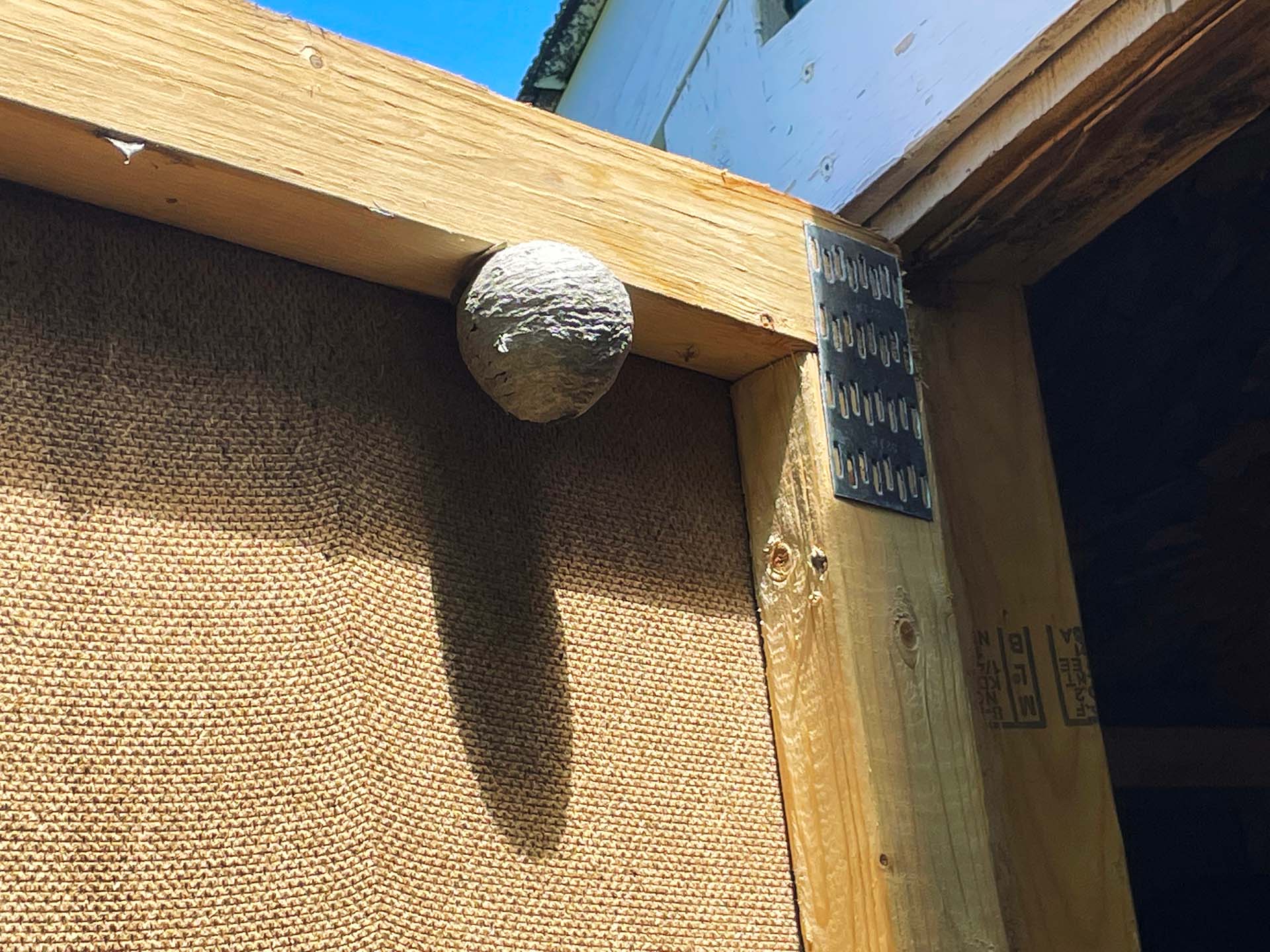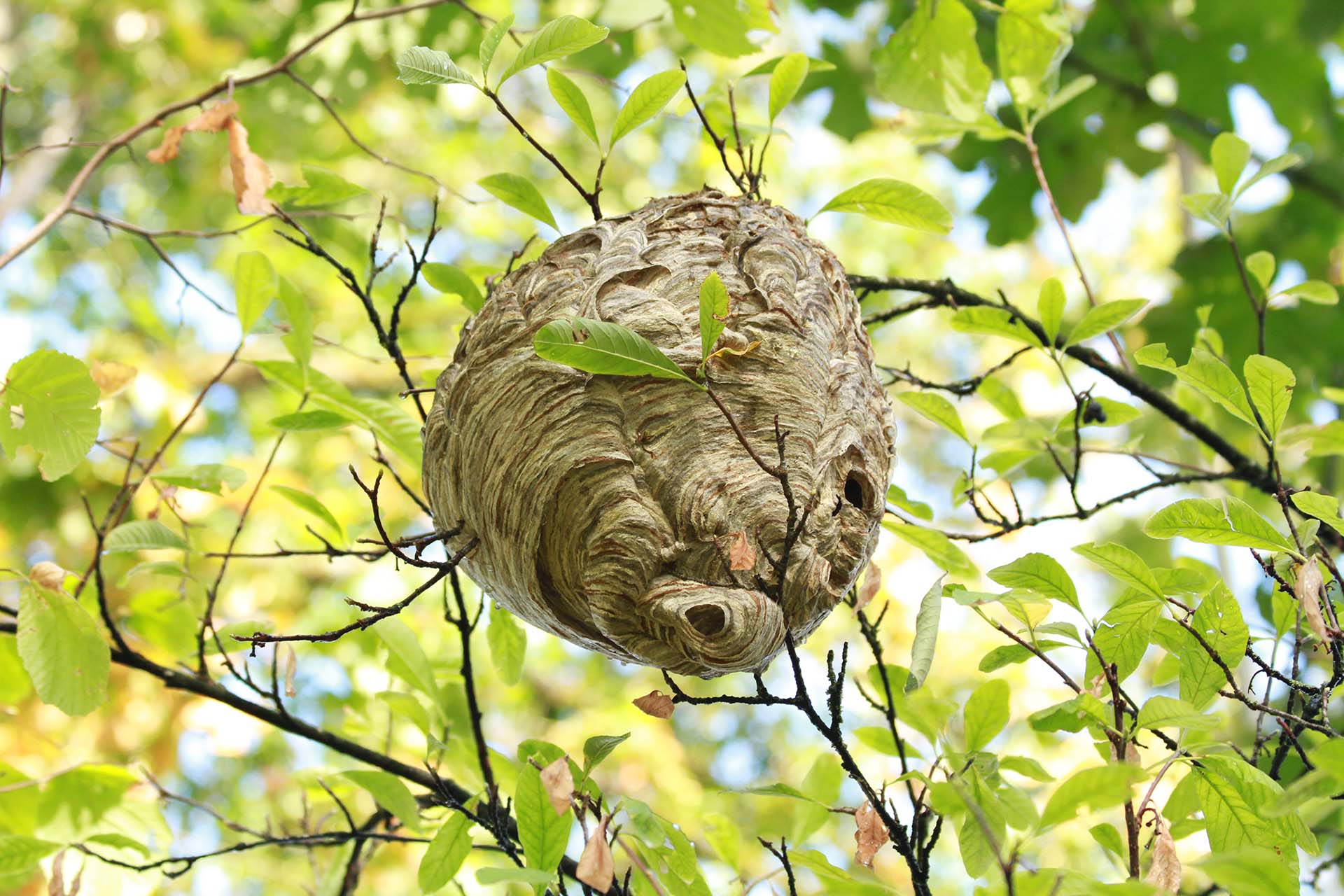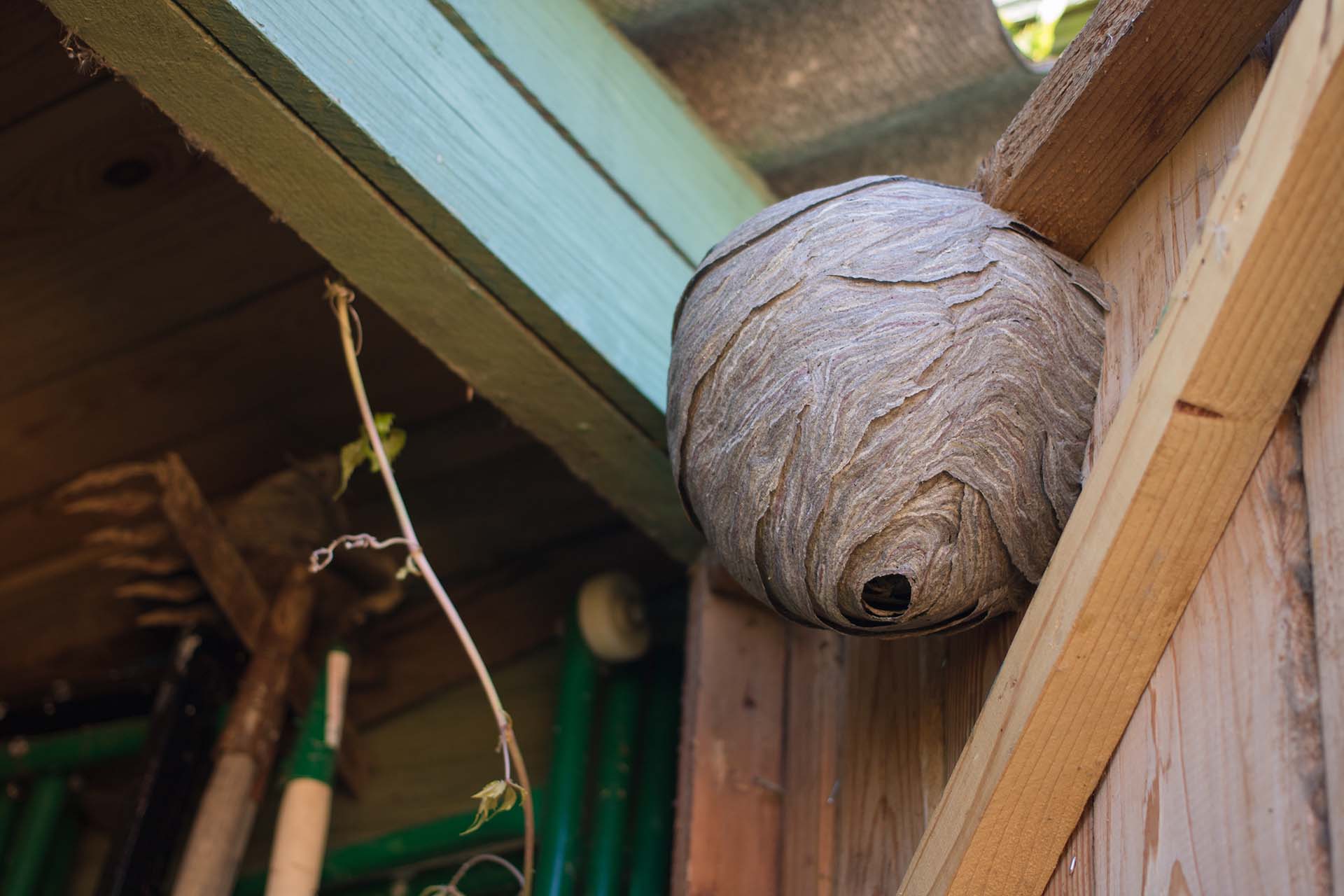How to Spot Wasp Activity
With the warm months encouraging vibrant garden life, we also encounter less desired guests, including wasps. Identifying wasp activity early can prevent potentially larger problems. This article will guide you through spotting wasp nests, distinguishing between wasps and bees, and what steps to take if you discover a nest.
Identifying a Wasp Nest
Wasp nests start small, often the size of a golf ball and will quickly grow. They are made from a papery substance created by chewing wood mixed with saliva. These initial structures are off-white or brown, appearing in sheltered areas like lofts, sheds or under eaves. As the season progresses, these nests can grow significantly, potentially housing thousands of wasps by the end of summer.

Stages of Wasp Nest Development
- Nest Establishment: Post-hibernation, the queen wasp selects a nesting site to start the colony. She builds a golf-ball sized nest on her own.
- Colony Expansion: The queen lays eggs in hexagonal cells within the nest, which then grow to include multiple layers and sections as the colony expands.
- Queen Production: By summer’s end, new queens are produced to repeat the cycle. They get mated and then go off to hibernate over the winter.
Distinguishing Wasps from Bees
It’s crucial to differentiate between wasps and bees, as they require different handling:
- Appearance: Wasps have a brighter yellow, more segmented bodies with a distinct waist, compared to the (usually) more robust and often hairy bees.
- Behaviour: Wasps can be more aggressive and are often attracted to protein sources and sweet foods. Bees are generally more interested in pollen and nectar sources.
- Nesting: Bees use wax to build their comb in existing cavities while wasps create nests with the characteristic grey papery material.
Signs of Wasp Activity
Increased wasp activity can be a tell-tale sign of a nearby nest. Observing wasps’ flight patterns might help locate the nest. Wasps are particularly active during the day and less so at night. They will enter nests in buildings and other locations using one entrance (and exit) point.
01604 328545 we will rescue them and find them a new home.

What to Do If You Spot a Wasp Nest
Discovering a wasp nest in your property should be handled cautiously:
- Do Not Disturb: Disturbing a nest can provoke wasps to become defensive and possibly aggressive.
- Professional Removal: Contacting a professional pest control service, like iX5 Pest Control, ensures safe and effective removal of wasp nests. DIY attempts can be risky and less effective, although it is often possible to undertake a DIY treatment on a starter nest before it gets too large.
Preventive Measures
Taking preventive measures can reduce the chances of wasp nests on your property:
- Regular Inspections: Check attics, sheds and garden areas regularly for early signs of nests. Remove any old nests so you can easily see if a new one is being built.
- Secure Food Sources: Keep food covered during outdoor events; secure bins and compost areas.
- Maintain Garden: Regular maintenance helps disturb the early stages of nest building, discouraging wasps from settling.
- Maintain Buildings: fill all holes and gaps etc in the structure as far as reasonably practicable, to prevent wasp ingress.
Early detection and professional intervention are key to managing wasp problems effectively. Understanding the difference between wasps and bees also helps in applying the right measures. Should you encounter a wasp nest, or require advice on preventive strategies, iX5 Pest Control is equipped to assist with effective solutions tailored to your needs.
Wasp Pest Control
At iX5 Pest Control, we offer wasp control services for both domestic and businesses premises in Northampton, Daventry, Rugby, Market Harborough, Towcester, Brackley, Wellingborough, Kettering, Corby, Olney and all of the surrounding areas. Our team of specialists are available both evenings and weekends at no extra cost. Should you require assistance call us on 01604 328545, email [email protected] or use our simple contact form.

